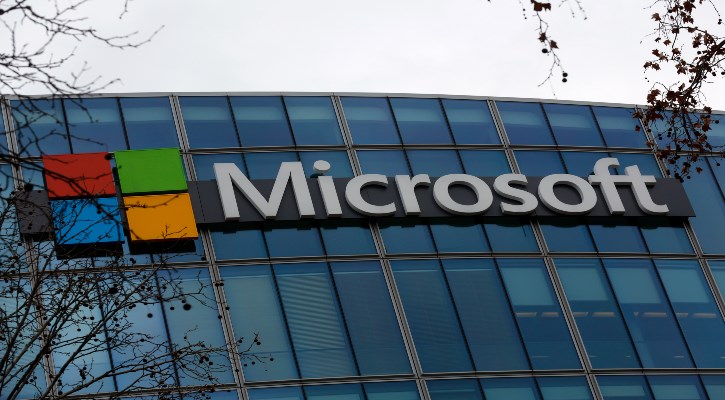
The Days of #Deliveroops Might be Ending
Deliveroo’s IPO flop in the UK landed it with a smörgåsbord of negative headlines. From profitability to labour rights, the company had its work out to convince investors that its floatation was not, in fact, the most disappointing IPO in UK history. The fightback has clearly already begun, though. As James Gard explored in a video this week, Deliveroo is trading below its fair value. Resilient growth in the food delivery space, alongside several noteworthy projects, could be among the things that help it – at last – to turn a profit. Just make sure you know which dip you’re actually buying.
SFDR is a Beautiful Mess
Eight months after the rollout of the European Union’s Sustainable Financial Disclosure Regulation, the results – though positive overall – are far more varied than planned. As Morningstar ESG expert Hortense Bioy explored on Monday, asset managers have taken different approaches to interpreting “Article 8” and “Article 9” funds, resulting in what she describes as “an unexpectedly high number and broad range of products”. The transparency is welcome in professional investor circles, but it is still unclear whether DIY investors are benefiting, let alone the planet.
It Happens to Mutual Insurers Too
Mutual insurer LV= is in a proper pickle. Years of building its brand as the kooky and loving face of general insurance and pension saving were reversed in a matter of months following its decision to sell to US private equity company Bain Capital. Then, enter Royal London, whose initial bid for its competitor left it sidelined when Bain’s bid eventually won out. Royal London has since returned to the fray with a proposal to break up the company. And we all thought that Succession-style dramas were reserved for companies without love hearts in their logos. This could turn into the bane of LV= customers' lives.
Inflation Might Not Be as 'Transitory' as Claimed
Ever since the inflationary chaos of the 1970s, UK politicians of all stripes have been wedded to the notion that achieving low-to-steady inflation is the holy grail of monetary outcomes. The full nature of the challenge facing the government and the Bank of England’s monetary policy committee has become painfully clear this week. In the UK, inflation has soared. Top of the inflationary list is medium-density fibreboard, or MDF, which has endured a 63% price rise since January alone. That might look like a weird curiosity, but such changes always matter to someone. In a country already struggling to enhance its infrastructure, construction projects are really key. “Build back better” just got harder.
You Can Bin the 4% Rule
And speaking of rules of thumb, Morningstar has something to say about retirement. Remember the 4% drawdown rule first popularised by financial planner Bill Bengen in 1994? Well, our analysts reckon it now needs a small but significant revision. Using forward-looking estimates for investment performance and inflation, we estimate that the standard rule of thumb should now be lowered to 3.3%, assuming a balanced portfolio, fixed real withdrawals over 30 years, and a 90% likelihood of not running out of money altogether. Our take is less news story and more submit-this-for-your-economics-degree, and is worth the longer read.
If Joe Lycett Can Take a View on Shell, So Should You
Strip away the complex graphs and there is a very simple truth concerning the future of oil giant Shell: it pollutes too much. Comedian Joe Lycett got his start on stage by doing stand-up, but he has since turned his hand to taking on corporate giants with poor environmental records. A documentary recently released by the comedian features a particularly unsavoury spoof advert about the company’s emissions goals. Given the huge stack of questions awaiting investors about the dividend giant, they would be wise to formulate a view of the company of their own and get voting.
Tesla has Kicked Berkshire Hathaway to the Buffers
Excuse the obvious conclusion, but Tesla is absolutely huge. Gone are not-so-long-ago days (2019) where investors were unsure whether its scale would actually produce positive returns. As our analysis of the electric vehicle pioneer this week shows, the company is now the fifth largest stock in the United States, up from $752 billion at the start of 2021 and $117 billion in January last year, when it was the country’s 64th largest stock. Its market value ($1 trillion-plus) is now higher than Warren Buffett’s Berkshire Hathaway, Johnson & Johnson, and, yes, even Home Depot.
It’s Worth Keeping China Risk in Mind
China has proven a fertile ground for growth investors over the past decade, but the view that it is a permanently safe bet is a lazy one. Nothing is. In a special analysis of emerging market risk this week, Daniel Sotiroff reminds readers that China is an ever-changing picture. Just 10 years ago, oil stocks and banks dominated its markets. Today, the country is a real hub for technology and consumer discretionary stocks. But that transition, and the government interventions accompanying it, have not been without risk.
Games Workshop has had an “Orkward” 2021
Games Workshop was a lockdown darling, and fund managers holding the company were quick to sound off about the benefits of holding it. But the last 12 months paint a different picture. This week, Morningstar’s UK data afficionado Sunniva Kolostyak looked at last year’s top performing stocks to see if they were still buys. Having returned 86.49% in 2020, year-to-date returns at the company look less peachy at -11.96%. Granted, that’s not a direct comparison, and its two-year annualised returns are still healthy at 33.75%. Compared to some, it’s still a model performer.
People Quitting (and Suing You) is a Portfolio Risk
This week Amazon hit the headlines when it decided to settle in a California lawsuit that alleged it had failed to adequatedly inform warehouse staff of Covid-19 outbreaks. Then, two days later, a former executive at its cloud computing arm filed a lawsuit of her own, alleging that Amazon Web Services ran a “toxic” work culture based on “open contempt, insults, and hostility”. Amazon will no doubt take the hit, but as our look at The Great Resignation this week shows, companies that declare that workers are their best assets must also be mindful of the potential impact of – for want of a better phrase – pissing them off. Depressingly, Morningstar analysis suggests that companies with unionised workforces deliver lower returns. Make of that what you will.




























